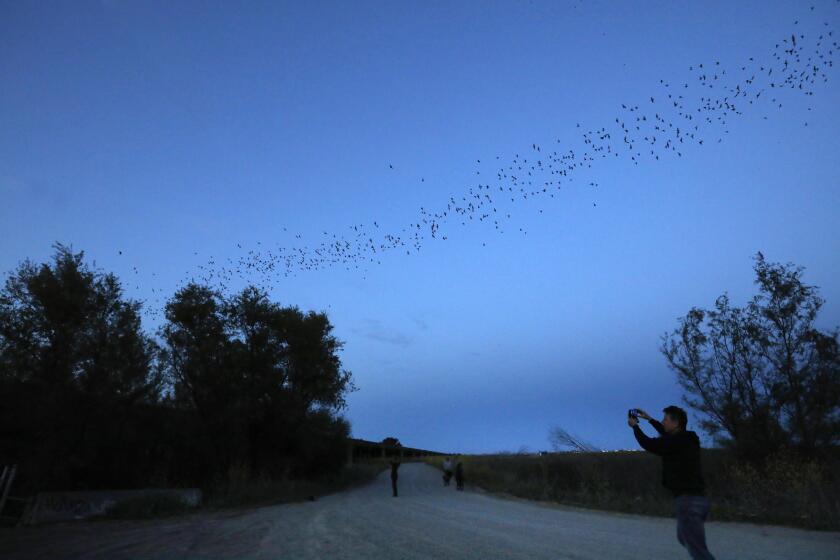Water Officials’ Authority Upheld in Logging Case
SAN FRANCISCO — In a case involving Pacific Lumber Co.’s redwood groves, the California Supreme Court on Monday ruled that state water officials have the power to order timber companies to monitor the quality of streams and rivers near logging sites.
Pacific Lumber Co. had challenged a state water board order that required it to measure the effects of logging about 700 acres on the south fork of the Elk River in Humboldt County. But in unanimously rejecting the challenge, the state high court upheld an appellate court ruling that affirmed the administrative authority of the state and regional water boards in disputes over water protection.
Michael Lauffer, chief council of the State Water Resources Control Board, said the court’s decision created important precedent by signaling that the boards’ orders trump those of other agencies.
“It affirms that we are the final arbiters of regulating water quality, whether it’s related to a sewage treatment plan or logging activity,” he said.
Lauffer said the company conducted the required monitoring as it logged most of the area and pursued legal action. Pacific Lumber Co. representatives could not be reached for comment.
State officials and residents have complained that Pacific Lumber Co.’s past logging practices and road building resulted in erosion and silting of streams. Officials have said most of the damage occurred before the company was acquired in 1985 by Texas-based Maxxam Corp., headed by financier Charles Hurwitz.
Several years ago, the state Division of Forestry approved an amendment to a timber harvest plan submitted by Pacific Lumber Co., but regional water-quality officials objected, saying that it contained insufficient safeguards to protect nearby waters from the proposed logging.
After forestry officials overruled the objection, the regional and state water boards directed Pacific Lumber to adopt a water-quality monitoring program.
The lumber company contended that the orders from the water-quality agencies were invalid because the forestry officials already had approved logging under the state Forest Practices Act. But the high court concluded that the law specifically precluded forestry officials from usurping the administrative missions of other agencies, such as the state and regional water-quality boards.
More to Read
Sign up for Essential California
The most important California stories and recommendations in your inbox every morning.
You may occasionally receive promotional content from the Los Angeles Times.










![[20060326 (LA/A20) -- STATING THE CASE: Marchers organized by unions, religious organizations and immigrants rights groups carry signs and chant in downtown L.A. "People are really upset that all the work they do, everything that they give to this nation, is ignored," said Angelica Salas of the Coalition of Humane Immigrant Rights. -- PHOTOGRAPHER: Photographs by Gina Ferazzi The Los Angeles Times] *** [Ferazzi, Gina -- - 109170.ME.0325.rights.12.GMF- Gina Ferazzi/Los Angeles Times - Thousands of protesters march to city hall in downtown Los Angeles Saturday, March 25, 2006. They are protesting against House-passed HR 4437, an anti-immigration bill that opponents say will criminalize millions of immigrant families and anyone who comes into contact with them.]](https://ca-times.brightspotcdn.com/dims4/default/34f403d/2147483647/strip/true/crop/1983x1322+109+0/resize/840x560!/quality/75/?url=https%3A%2F%2Fcalifornia-times-brightspot.s3.amazonaws.com%2Fzbk%2Fdamlat_images%2FLA%2FLA_PHOTO_ARCHIVE%2FSDOCS%2854%29%2Fkx3lslnc.JPG)